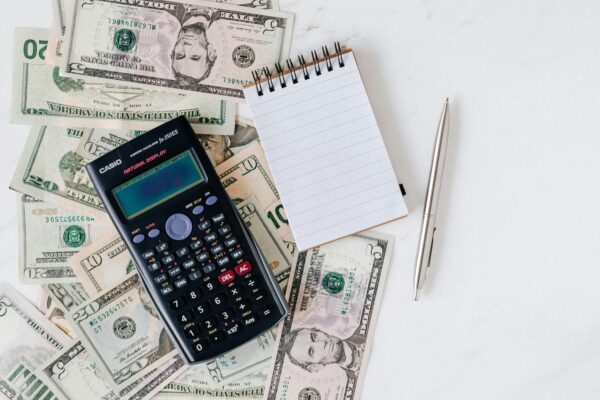Emergency Funds: Their Importance and How to Create One

Life is full of surprises, and not all of them are good. Imagine your car suddenly breaks down, or you lose your job unexpectedly. Without money set aside, these situations can cause a lot of stress on mentally as well as financially. This is why an emergency fund is important. It helps you cover unexpected expenses without borrowing money or using your savings meant for other goals.
In this blog post, we will talk about why emergency funds are a key part of personal finance and financial planning. We will also guide you on how to build one step by step.
Why Is an Emergency Fund Important?
An emergency fund is money set aside to cover unexpected expenses. Here’s why you need one:
- Covers Unexpected Expenses
- Medical emergencies, home repairs, or sudden job loss can happen at any time. An emergency fund helps you manage these costs without stress.Who knew the pandemic would happen, and suddenly, your main source of income would stop? In the COVID pandemic, everyone faced that.
- Prevents Debt
- Without savings, people often use credit cards or loans to handle emergencies. This creates debt and interest payments that make financial problems worse. By frequently using high-interest credit cards or personal loans, you will lose a significant amount of your net income.

Image Credit: Pexels
- Without savings, people often use credit cards or loans to handle emergencies. This creates debt and interest payments that make financial problems worse. By frequently using high-interest credit cards or personal loans, you will lose a significant amount of your net income.
- Provides Peace of Mind
- Knowing you have money for emergencies helps reduce stress and lets you focus on other financial goals.for example If you have all your money only in equities like stocks or mutual funds, it will be difficult to access funds in an emergency, especially if the market is at a lower level.You will receive a negative return on your investments.
- Protects Investments
- If you have investments like a mutual fund, an emergency fund prevents you from withdrawing money early, which could result in losses.in market so many liquid funds are available to invest like HDFC Liquid Fund.
How Much Should You Save?
The amount you need in your emergency fund depends on your lifestyle and expenses. A general rule is to save three to six months’ worth of expenses. Here’s how to decide:
- If you have a stable job, aim for three months of expenses.
- If you have irregular income or dependents, save for six months or more.
For example, if your monthly expenses are $1,500, you should save at least $4,500 to $9,000.
Steps to Build an Emergency Fund
1. Set a Goal
Decide how much you need and in what time period. Start with a small goal, like $500, and gradually increase it.
2. Create a Budget
Track your income and expenses. Identify areas where you can cut costs, like eating out or subscriptions, to save money.Create your budget using 50/30/20 rule.

3. Save Regularly
Make saving a habit. Set aside a fixed amount every month. If possible, automate transfers to your emergency fund.
4. Keep It Separate
Your emergency fund should be in a different account from your daily spending money. A high-yield savings account is a good choice because it earns interest but is still easy to access.
5. Spend unexpected money wisely
If you receive extra money, such as a tax refund, bonus, or gift, add it to your emergency fund instead of spending it. By using this method, you will achieve your emergency fund in a shorter period of time than expected.
6. Avoid Unnecessary Withdrawals
Use the fund only for real emergencies, not for shopping or vacations.
Where to Keep Your Emergency Fund
Your emergency fund should be safe, easy to accessible, and separate from your regular spending. Here are some options:
- High-Yield Savings Account
- Offers interest while keeping your money safe.
- Money Market Account
- A mix of savings and checking account features, with better interest rates.
- Fixed Deposits (FDs) & Liquid Mutual Funds
- Good for slightly higher returns while still keeping your money accessible.
- Now, every bank offers FD facilities as part of their banking services.
- In liquid mutual funds,Typically higher interest than regular savings and easy to accessible.

Image Credit: Pexels
Common Mistakes to Avoid
- Not Starting Early
- Many people delay saving because they think they won’t face emergencies. Start small and build over time.
- Not Saving Enough
- Some people stop at $500 or $1,000, but this may not be enough for major emergencies.Atleast you have to save three month exp
- Using It for Non-Essential Expenses
- Your emergency fund is not for shopping, vacations, or regular expenses.
- Keeping It in a Risky Investment
- Stocks and risky mutual funds can lose value. Keep your emergency savings in a safer option.
Conclusion
An emergency fund is a must-have for financial planning. It protects you from debt, helps you handle unexpected expenses, and gives you peace of mind. Start today by saving a small amount and increasing it over time. A well-planned emergency fund ensures that you are financially secure, no matter what happens in life.
Remember, financial security starts with smart money habits. Build your emergency fund now and stay prepared for the future.



